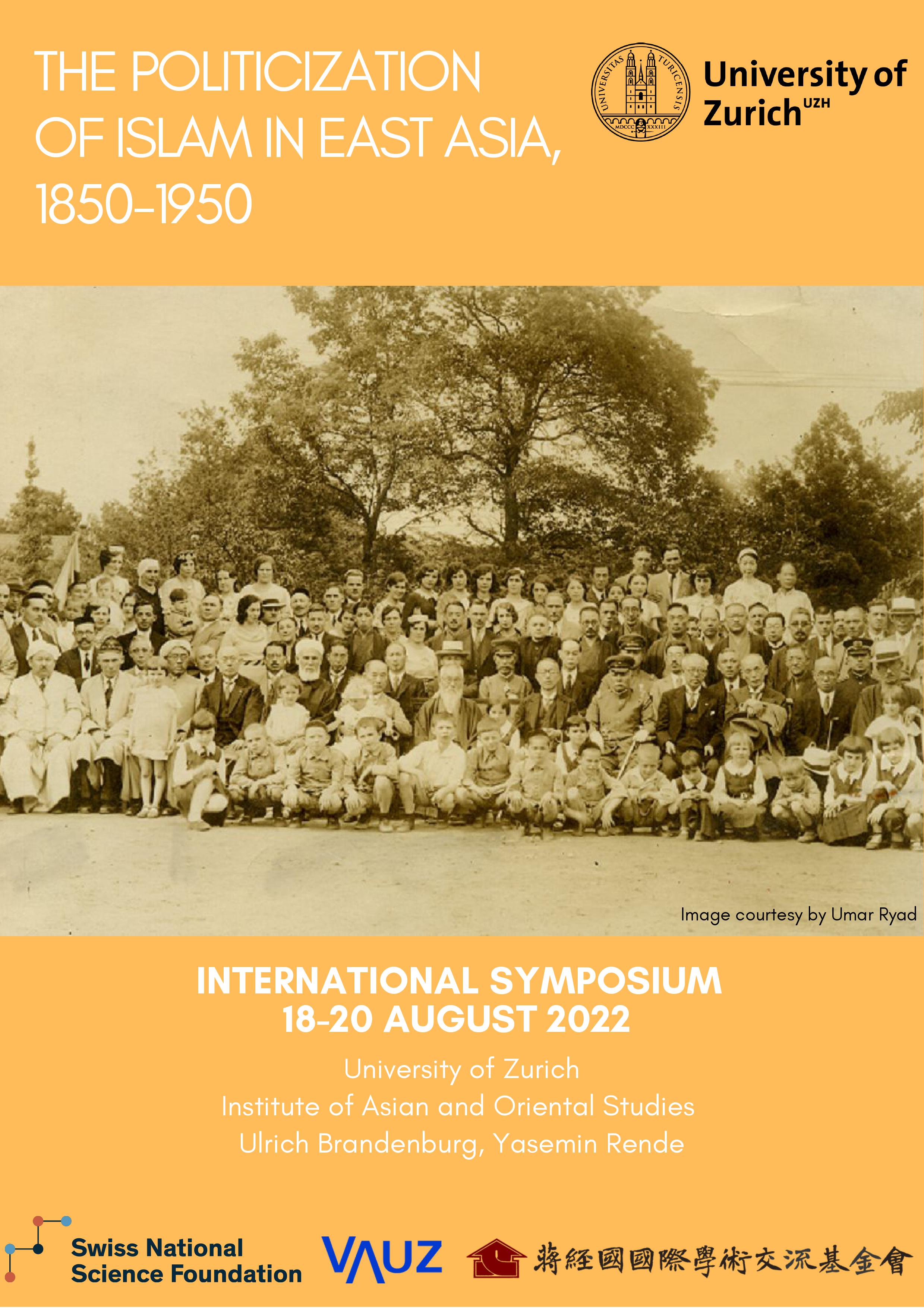2022: The Politization of Islam in East Asia, 1850-1950
International Symposium, Zurich, August 18-20, 2022
Throughout the modern age, Islam and the imaginary Muslim World have played important roles in geopolitical speculation and strategy-making. The Ottoman Empire from the late nineteenth century onwards actively tried to refashion its legitimacy to become the political and religious center of global Islam, stressing in particular the relevance of the Ottoman Caliphate. All major empires, at one point or another, became aware of the strategic importance of Muslims within their imperial borders, whose loyalty or disloyalty was deemed crucial for the stability of the imperial framework. As a visible symbol of the inclusion of Muslims into imperial community-building, mosques were built in various capitals during the first half of the twentieth century with political support. At the same time, imperial powers attempted to mobilize their own Muslim representatives and populations to increase their influence abroad or to delegitimize and destabilize competitors. During the two world wars, even non-Muslim states such as Germany, Italy, or Japan energetically tried to gain the support of Muslim communities through anticolonialist propaganda, pan-Islamic symbolism, or financial incentives. Muslim intellectuals, in conjunction with academic Orientalists and imperial strategists, participated in the imagination of a unified Muslim World to further their own interests and empower Muslim communities. While the politicization of Islam in the contexts of the Ottoman Empire, the two world wars, or rivalries between European empires has been addressed in a considerable body of research, the history of Islam and politics in East Asia still remains patchy. This symposium brings together scholars working on different aspects related to the politicization of Islam in East Asia to discuss research results and address open questions.
Venue / Registration
Andreassstrasse 15, 8050 Zürich, Room: AND-4-02
To participate please register here: yasemin.rende@uzh.ch
Organization
University of Zurich - Institute of Asian and Oriental Studies
Support
Swiss National Science Foundation
Chiang Ching-kuo Foundation
VAUZ
